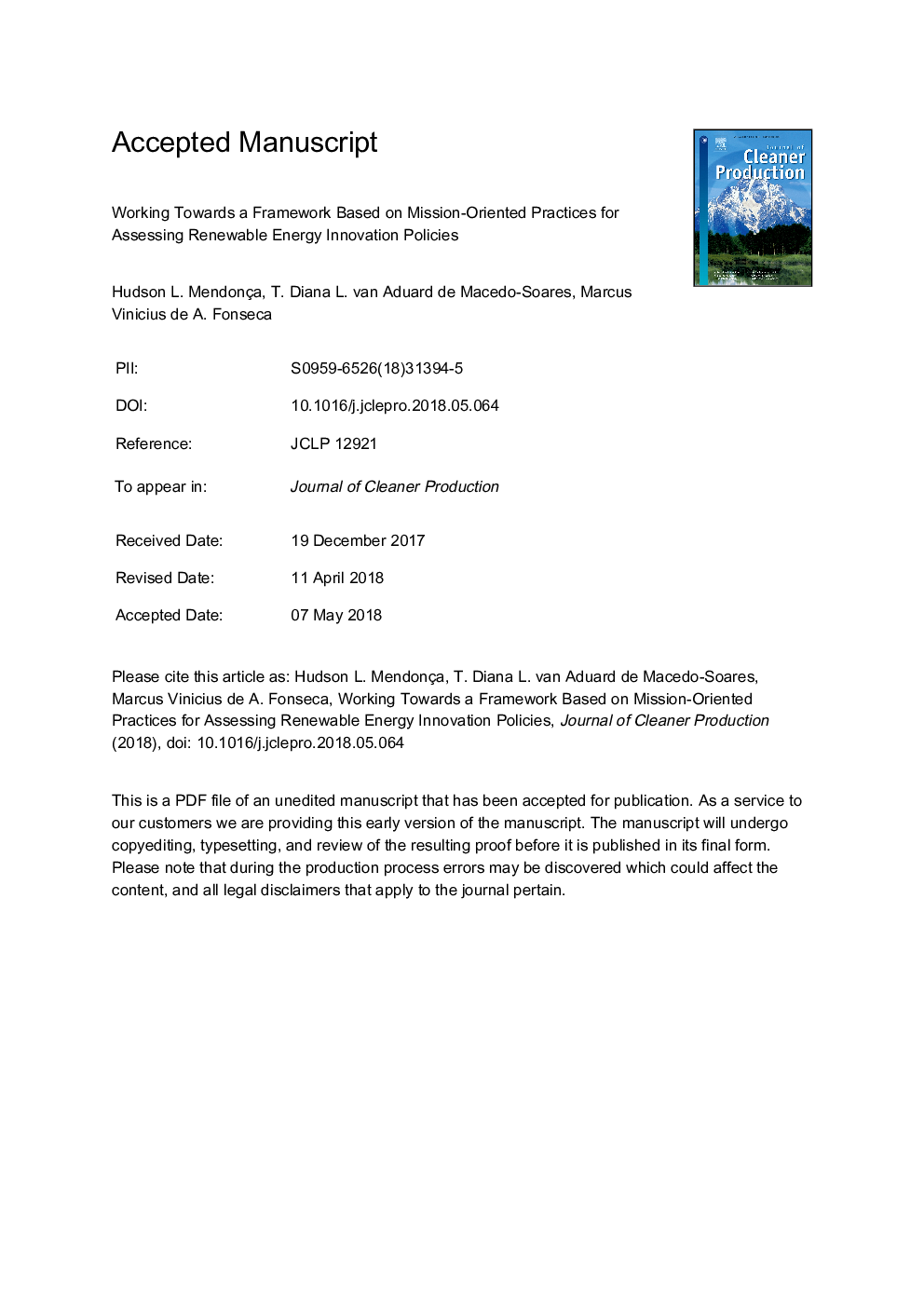| Article ID | Journal | Published Year | Pages | File Type |
|---|---|---|---|---|
| 8094651 | Journal of Cleaner Production | 2018 | 21 Pages |
Abstract
Mission-oriented programs have regularly been used as innovation policies when governments (or societies) are faced with complex challenges that demand radical innovations and multiplayer coordination. Nowadays, the global climate-change question, including the energy source issue, is an example of a mission-oriented challenge. Several countries have adopted energy programs with mission-oriented characteristics. Brazil, for example, launched three programs (PAISS, PAISS 2 and Inova Energia) to foster innovations in renewable energy sources such as biofuels, solar and wind power. These programs dealt with radical innovations, big challenges and multiplayer coordination, but did not use some important mission-oriented best practices. Based on an extensive literature review, this article's aim is to present a framework developed to verify whether renewable energy innovation programs meet the requirements for being classified as mission-oriented programs. It is assumed that mission-oriented programs can contribute to the effectiveness of renewable energy innovation policies. The case of Brazil and its Inova programs is used as an example of how to apply this framework, although the latter was designed for application to any renewable energy mission-oriented program.
Related Topics
Physical Sciences and Engineering
Energy
Renewable Energy, Sustainability and the Environment
Authors
Hudson L. Mendonça, T.Diana L. van Aduard de Macedo-Soares, Marcus Vinicius de A. Fonseca,
